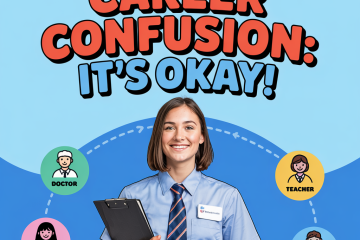Presenting Your Personal Brand: Elevator Pitch Practice for Students

Imagine you’re at a college fair, a networking event, or even just meeting someone interesting, and they ask, “So, tell me about yourself.” Having a quick, clear, and confident answer ready is essential. This brief introduction is often called an “elevator pitch.” Creating and practicing a simple student elevator pitch helps you make a positive first impression and effectively communicate your interests and goals.It’s a fundamental tool for personal branding students can develop early. You can start building your personal brand today on cirkled in.
What’s an Elevator Pitch (and Why Do Students Need One)?
An elevator pitch gets its name from the idea of explaining who you are and what you’re about in the short time it takes to ride an elevator (roughly 30-60 seconds). It’s a concise summary designed to capture attention and spark interest.
For students, it’s useful for:
- Introducing yourself to college representatives or potential mentors.
- Networking events or career fairs (career fair introduction).
- Informational interviews.
- Briefly explaining your interests or goals in applications or interviews.
It’s like a verbal business card or a 30 second commercial example about you.
Key Components of a Student Elevator Pitch
A good student pitch usually includes:
- Who You Are: Your name, school, and year/grade level.
- Your Key Interests: What academic subjects, activities, or career fields genuinely excite you?
- Relevant Experience/Skill (Optional but good): Briefly mention a key experience, project, or skill related to your interests.
- Your Goal/Ask (Context-Dependent): What are you looking for in this specific situation? (e.g., learn more about a program, find contacts in a field, express interest in an opportunity).
Crafting Your Pitch: A Simple Framework
Follow these steps:
- Identify Your Goal: Why are you giving this pitch? (To introduce yourself at a fair? To ask for an informational interview?) This shapes the ending.
- Write Down Key Points: Use the components above. Who are you? What are your 1-2 main interests/passions? What’s one relevant skill/experience? What’s your immediate goal?
- Draft Concise Sentences: Combine your points into clear, brief sentences. Avoid jargon or overly complex language.
- Refine and Edit: Cut unnecessary words. Ensure it flows smoothly. Aim for 30-60 seconds when spoken naturally.
- Tailor the Ending: The last sentence should adapt to the situation (e.g., “I’m hoping to learn more about your marketing program,” or “I’m exploring careers in environmental science”).
Elevator Pitch Examples for Students
- Example 1 (College Fair): “Hi, I’m Alex Rivera, a junior at North High School. I’m really interested in computer science, especially AI, and I’ve been teaching myself Python through some online projects. I saw your university has a strong AI research lab – could you tell me more about undergraduate research opportunities?”
- Example 2 (Networking Event): “Hello, my name is Sam Chen, and I’m a senior at Central High planning to major in environmental studies. I’m passionate about conservation and spent last summer volunteering on a trail restoration project. I’m hoping to connect with professionals working in local environmental non-profits today.”
- Example 3 (Requesting Mentorship): “My name is Maria Garcia, a sophomore at Eastside High. I’m fascinated by graphic design and have been learning Adobe Illustrator. I admire the design work your agency does, and I was hoping I might ask you a few questions about your career path sometime.”
Notice how they are brief, specific, and end with a clear purpose or question.
Practice Makes Perfect: Delivering Your Pitch
Writing it down is just the first step. Elevator speech practice is crucial:
- Read it Aloud: Does it sound natural? Are there awkward phrases?
- Time Yourself: Adjust length as needed.
- Practice with Others: Ask friends, family, or a counselor to listen and give feedback.
- Sound Confident (Not Robotic): Practice until it feels comfortable, but don’t memorize it word-for-word so rigidly that it sounds unnatural. Smile and make eye contact.
When to Use Your Elevator Pitch
- College fairs or recruiting events.
- Networking functions (school or community).
- Beginning of informational interviews.
- When meeting potential mentors or contacts.
- Any situation where you need to introduce yourself networking quickly. Start building your network today on Cirkled in.
Final Thought: Be Ready to Introduce Yourself
You never know when you’ll meet someone who could offer valuable advice or an opportunity. Having a polished student elevator pitch ready allows you to introduce yourself confidently and make a memorable first impression. Practice crafting and delivering your brief summary – it’s a simple but powerful tool for personal branding and networking.
Need more tips on college applications, scholarships, or just how to survive this whole process? Cirkled In has your back—check out Cirkled In resources to help you through every step of your college journey!Check out Cirkled In and start owning your future today!



4 Comments
Dante Poidevin · December 14, 2025 at 2:18 pm
Hello friends, nice article and I am in fact enjoying this.
Amy S · December 15, 2025 at 1:49 pm
Glad you’re enjoying it, Dante—hope it helps you craft a pitch that really stands out!
Eric Johnson · January 21, 2026 at 6:53 pm
Just wish to say your article is as astonishing. The clearness on your post is simply
spectacular and that i could think you’re an expert in this subject.
Amy S · January 26, 2026 at 11:13 am
Thank you so much, Eric! 😊 Glad the tips resonated. Elevator pitches can be tricky, but with practice, anyone can make their personal brand shine!